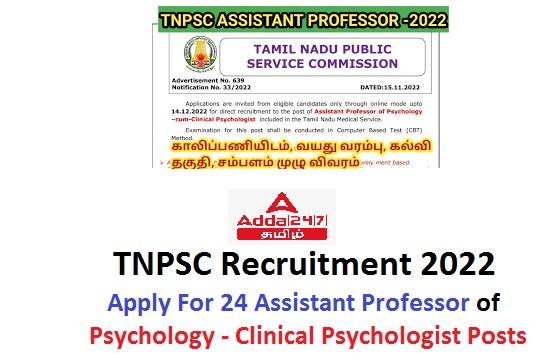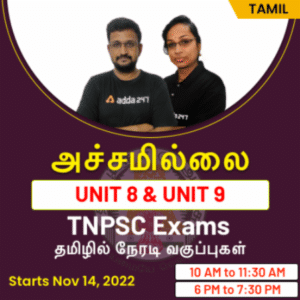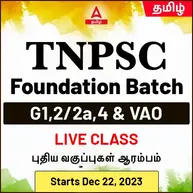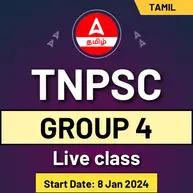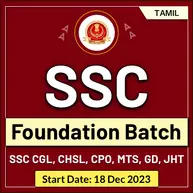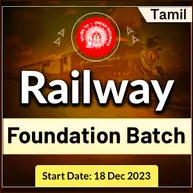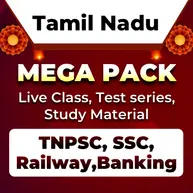Table of Contents
TNPSC Assistant Professor Recruitment 2022: TNPSC Assistant Professor Recruitment 2022 TNPSC Released the Notification for Assistant Professor of Psychology – Clinical Psychologist Posts. Applications are invited from eligible candidates only through online mode up to 14.12.2022 for direct recruitment to the post of Assistant Professor of Psychology –cum-Clinical Psychologist included in the Tamil Nadu Medical Service. Read the article to get detailed information about TNPSC Assistant Professor Recruitment 2022.
| Organization | Tamil Nadu Public Service Commission |
| Notification No | Advertisement No. 639
Notification No. 33/2022 Dated:15.11.2022 |
| Job Category | Tamilnadu Govt Jobs |
| Employment Type | Regular Basis |
| Vacancy | 24 Assistant Professor of Psychology – Clinical Psychologist Posts |
| Location | Tamilnadu |
| Starting Date | 15.11.2022 |
| Last Date | 14.12.2022 |
| Apply Mode | Online |
| Official Website | https://www.tnpsc.gov.in/ |
Fill the Form and Get All The Latest Job Alerts
TNPSC Assistant Professor Recruitment 2022 Notification PDF
TNPSC Assistant Professor Recruitment 2022 TNPSC ஆட்சேர்ப்பு 2022 தமிழ்நாட்டில் உள்ள 24 உதவி பேராசிரியர் & மருத்துவ உளவியலாளர் காலியிடங்களுக்கு விண்ணப்பிக்கவும்.இந்தக் கட்டுரையில், சமீபத்திய TNPSC கிளினிக்கல் சைக்காலஜிஸ்ட் ஆட்சேர்ப்பு 2022 காலியிட விவரங்கள், வயது வரம்பு, சம்பளம், ஆன்லைன் விண்ணப்பப் படிவம், விண்ணப்பிப்பதற்கான நேரடி இணைப்பு பற்றிய முழு விவரங்களையும் உள்ளடக்குவோம். இந்தப் பணிக்கு விண்ணப்பிக்கும் முன், சமீபத்திய TNPSC பேராசிரியர் பணி அறிவிப்பை 2022 முழுமையாகப் பார்க்குமாறு விண்ணப்பதாரர்கள் கேட்டுக் கொள்ளப்படுகிறார்கள்.
TNPSC Assistant Professor of Psychology Notification PDF
TNPSC Assistant Professor Recruitment 2022 Vacancy
TNPSC Assistant Professor Recruitment TNPSC ஆட்சேர்ப்பு இயக்கம் தமிழ்நாடு மருத்துவ சேவையில் 24 உளவியல் உதவி பேராசிரியர் மற்றும் மருத்துவ உளவியலாளர் பணியிடங்களை நிரப்புவதை நோக்கமாகக் கொண்டுள்ளது.
| Name of the post | Name of the service | No. of vacancies |
| Assistant Professor of Psychology-cum-Clinical Psychologist (Post Code No. 1954) | Tamil Nadu Medical Service (Service Code No.048) | 24 (including 9 c/f vacancies) |
TNPSC Assistant Professor Recruitment 2022 Apply online link
தமிழ்நாடு பப்ளிக் சர்வீஸ் கமிஷன் சமீபத்தில் ஆன்லைனில் உதவி பேராசிரியர் பணியிடங்களுக்கான சமீபத்திய ஆட்சேர்ப்பை அறிவித்துள்ளது. இந்த TNPSC உதவிப் பேராசிரியர் அறிவிப்பு 2022 அதிகாரப்பூர்வ இணையதளத்தில் 15.11.2022 முதல் 14.12.2022 வரை கிடைக்கும்.
TNPSC Assistant Professor Recruitment 2022 Apply online link
TNPSC Assistant Professor Recruitment 2022: Age Limit
விண்ணப்பதாரர்கள் ‘மற்றவர்களுக்கு’ அதிகபட்ச வயதை 37 ஆண்டுகள் தாண்டக்கூடாது [அதாவது. SCs, SC(A)s, STs, MBCs/DCs, BC(OBCM)கள் மற்றும் BCMs] மற்றும் SCs, SC(A)s, STs, MBC/DCs, BC(OBCM) ஆகியவற்றுக்கு அதிகபட்ச வயது வரம்பு இல்லை கள், BCMகள் மற்றும் அனைத்து வகைகளின் ஆதரவற்ற விதவைகள்.
| SI No | Category of Applicants | Maximum Age (Should not have completed) |
| 1. | SCs, SC(A)s, STs, MBC/DCs, BC(OBCM)s, BCMs and Destitute Widows of all categories. | No Maximum Age limit |
| 3. | ‘Others’ [i.e. candidates not belonging to SCs, SC(A)s, STs, MBCs/DCs, BC(OBCM)s and BCMs] | 37 years @ |
TNPSC Assistant Professor Recruitment 2022: Qualification
1.விண்ணப்பதாரர்கள் உளவியலில் M.A அல்லது B.A (Hons) அல்லது B.Sc (Hons) பட்டம் அல்லது முதுகலை டிப்ளமோ அல்லது மருத்துவ உளவியலில் பட்டம் அல்லது மருத்துவ உளவியலில் டிப்ளமோ முடித்திருக்க வேண்டும்;
2.விண்ணப்பதாரர்கள் பெங்களூரில் உள்ள அகில இந்திய மனநலக் கழகத்தின் மருத்துவம் மற்றும் சமூக உளவியலில் முதுகலை டிப்ளமோ அல்லது பெங்களூரு பல்கலைக்கழகம் அல்லது வேறு ஏதேனும் அங்கீகரிக்கப்பட்ட பல்கலைக்கழகத்தின் மருத்துவம் மற்றும் சமூக உளவியல் பகுதி II டிப்ளோமா பெற்றிருக்க வேண்டும்.
TNUSRB PC Admit Card 2022 Out, Download Hall Ticket
TNPSC Assistant Professor Recruitment 2022: Salary
| Name of the post | Name of the service | Scale of pay |
| Assistant Professor of Psychology-cum-Clinical Psychologist (Post Code No. 1954) | Tamil Nadu Medical Service (Service Code No.048) | Rs.56,100 – 2,05,700 (Level 22) (Revised scale) |
TNPSC Assistant Professor Recruitment 2022: Selection Process
தேர்வு (கணினி அடிப்படையிலான சோதனை முறை) மற்றும் நேர்காணல் வடிவத்தில் வாய்வழி சோதனை என இரண்டு தொடர்ச்சியான நிலைகளில் தேர்வு செய்யப்படும். CBT தேர்வில் விண்ணப்பதாரர்கள் பெற்ற மொத்த மதிப்பெண்கள் மற்றும் நியமனங்களின் இடஒதுக்கீடு விதிக்கு உட்பட்டு வாய்மொழித் தேர்வு ஆகியவற்றின் அடிப்படையில் இறுதித் தேர்வு செய்யப்படும். விண்ணப்பதாரர்கள் CBT தேர்வு மற்றும் வாய்வழி சோதனையில் தோன்றுவது கட்டாயமாகும்.
| 1. | Objective Type (CBT Method) |
| 2. | Oral Test |
TNPSC Assistant Professor Recruitment 2022: Application Fee
எந்தவொரு பதவிக்கும் விண்ணப்பிக்கும் முன் ஆதாரை இணைப்பதன் மூலம் “ஒரு முறை பதிவு” செய்வது கட்டாயமாகும். விண்ணப்பதாரர் பதிவுக் கட்டணமாக ரூ.150/- செலுத்தி ஒரு முறை மட்டுமே பதிவு செய்ய வேண்டும்.
| a. | Registration Fee:
For One Time Registration [G.O.(Ms).No. 32, Personnel and Administrative Reforms (M) Department, dated 01.03.2017] Note: Applicants who have already registered in One Time online Registration system and within the validity period of 5 years are exempted |
Rs.150/- |
| b. | Examination Fee:
Note: The Examination fee should be paid at the time of submitting the online application for this recruitment, unless exemption of fee is claimed. |
Rs.200/- |
| Note: Fee Pay by online through Net Banking / Credit card / Debit card on or before the date of submission of online application by choosing the option in the online application. | ||
How to Apply forTNPSC Assistant Professor Recruitment 2022
1.விண்ணப்பதாரர்கள் ஆணையத்தின் இணையதளங்களான tnpsc.gov.in அல்லது www.tnpscexams.in இல் ஆன்லைன் முறையில் மட்டுமே விண்ணப்பிக்க வேண்டும்.
2.ஒரு முறை பதிவு செய்யும் முறையின் கீழ் விண்ணப்பிக்க, விண்ணப்பதாரர்கள் ஸ்கேன் செய்து பதிவேற்றம் செய்வதற்கான வழிகாட்டுதல்களில் கொடுக்கப்பட்டுள்ள விவரக்குறிப்புகளின்படி, தங்கள் புகைப்படத்தின் ஸ்கேன் செய்யப்பட்ட படம், குறிப்பிட்ட சான்றிதழ்கள் ஏதேனும் இருந்தால், CD/DVD/Pen Drive-ல் கையொப்பமிட வேண்டும். புகைப்படம் மற்றும் கையொப்பம்.
3.விண்ணப்பதாரர்கள் ஏற்கனவே உள்ள தகவல்களைப் பார்க்கவும் அவற்றைப் புதுப்பிக்கவும் தனிப்பட்ட ஐடி மற்றும் கடவுச்சொல்லை உள்ளிட வேண்டும். அவர்கள் ஐடி/கடவுச்சொல்லை வேறு எந்த நபர் அல்லது ஏஜென்சியுடன் பகிர்ந்து கொள்ள மாட்டார்கள்.
4.இந்த ஆட்சேர்ப்புக்கு விண்ணப்பிக்க விரும்பும் விண்ணப்பதாரர்கள், கமிஷனின் இணையதளத்தில் அறிவிக்கப்பட்ட ஆட்சேர்ப்புக்கு எதிராக “விண்ணப்பிக்கவும்” என்பதைக் கிளிக் செய்யவும், ஒரே பயனர் ஐடி மற்றும் கடவுச்சொல்லைப் பயன்படுத்தி ஒரு முறை பதிவு செய்ய வேண்டும்.
5.ஸ்கேனிங் ஆவணங்களைச் சமர்ப்பித்து, தேவையான புலங்களை உள்ளிட்டு விண்ணப்பக் கட்டணத்தைச் செலுத்தவும். விண்ணப்பத்தை சமர்ப்பித்த பிறகு, விண்ணப்பதாரர்கள் தங்கள் விண்ணப்பத்தை PDF வடிவத்தில் சேமிக்கலாம் / அச்சிடலாம்
How to crack TNPSC group 1 in first attempt?
TNPSC Assistant Professor Recruitment 2022: Syllabus
PSYCHOLOGY
PG DEGREE STANDARD
SUBJECT CODE : 372
UNIT-I DEVELOPMENTAL PSYCHOLOGY
Prenatal, Infancy, Childhood – Characteristics, Periods, Hazards, Developmental
Tasks. Physical, Cognitive, Social, Emotional, Moral Development
Adolescences – Characteristics, Hazards, Developmental Tasks, Physical, Cognitive,
Social, Emotional, Moral Development
Adulthood – Characteristics, Developmental Tasks, Vocational & Marital Adjustment,
Hazards, Physical, Emotional and Social Changes.
Middle age – Characteristics, Developmental Tasks, Vocational & Marital Adjustment,
Hazards, Physical, Emotional and Social Changes.
Old age – Characteristics, Developmental Tasks, Hazards, Physical, Emotional and
Social Changes, Graceful Aging and Death and Adjustments.
UNIT II : PERSONALITY : THEORIES AND APPLICATIONS
Personality – Definition, Levels of Personality Analysis, Sources of Personality Data,
Role of Personality Theory, Personality Assessments
Approaches – Psychodynamic, Dispositional, Biological, Intra-psychic, Cognitive,
Experiential, Social and Cultural. Eastern Perspective – Yoga and Hindu Tradition, Zen
Buddhism, Sufism and Islamic Tradition. Applications of Various approaches of
Personality.
UNIT-III – BIO PSYCHOLOGY
Introduction to Neuron and Nervous System – Brain and its functions – Endocrine
Glands – Characteristics, Major Endocrine glands, Hormone Characteristics and
Functions. State of Consciousness. Physiology of Motivation and Emotions. Research
Methods in Bio Psychology.
UNIT-IV – COGNITIVE PSYCHOLOGY
Cognitive Psychology – Nature, History, Cognitive Neuro Science and Applications –
Perception – Definition, Nature & Theories. Attention – Processing Capacity in
Selective Attention, Models of Selective attention. Pattern Recognition and
Consciousness. Memory Structure and Processes – Types and Process of Memory,
Theories of neurocognition. Mental Representation – Models, Mental Imagery – and
Cognitive Psychology, Cognitive maps, Storing and Retrieval, Theories of retrieval,
Forgetting, Cognitive Development – Life Span Development and Theories.
UNIT V: ADVANCED SOCIAL PSYCHOLOGY
Social Psychology – Definition, Perspectives, Social Perception, Social Cognition,
Attitudes, Social Identity, Prejudice – Causes and Effects. Interpersonal Attraction –
Close relationships, Social Influence, Pro Social Behaviour, Aggression – Nature,
cause and control, Groups and Individual behaviour. Social Psychology in Action.
UNIT VI – HEALTH PSYCHOLOGYHealth Psychology – Definition & Scope. Historical Perspective on health & healing.
Factors influencing Health. General approaches to health – Models and theories of
health, Psychological approaches to health. Health enhancing behaviour – Eating
behaviour & health, Maintaining healthy weight, Healthy relationships – Sexuality,
Intimacy, Communication, Anger.
Health compromising behaviour- Smoking –Tobacco and its biological & psychological
effects, Tobacco related damage to health, quitting smoking and related therapies.
Alcohol – biological and social effect, Use and abuse, Interventions for alcoholism.
Stress and Coping – Types of stressors, Theories of stress, types of coping, stress
management techniques. Cardiovascular Disease , Psychoneuroimmunology.
UNIT-VII : PSYCHOPATHOLOGY
Mental disorders – Models, Diagnostic classification system. Theoretical approaches of
Psychopathology. Assessment – Clinical interviews, MSE, MMSE, Case history, Clinical
observations. Tests- Intelligence, Neuropsychological testing, Developmental and
Educational testing – Organic disorders – Disorders of childhood and adolescence,
Anxiety, Trauma, Stress related and Somatoform disorders, Disorders of adult
personality, gender and behaviour -Impulse control disorder, Substance use and
addictive disorder, Sexual dysfunctions, Mood- Disorder, Schizophrenia and other
psychotic disorder. Ethics in clinical practice.
UNIT VIII: ORGANIZATIONAL BEHAVIOUR AND HUMAN RESOURCE
MANAGEMENT
Organizational Behaviour- Definition, Nature & scope, Approaches. Perception,
Attitude, Learning, Attribution, Motivation – Definition, theories and applications in
organizations. Communication, Leadership and theories, Change process. Group and
Teams, Conflict process, Power and politics.
Human Resource Management – Definition, Nature and Scope, Human Resource
Planning, Job Analysis, Recruitment, Selection and Placement Compensation,
Performance and Management, Training and Development, Grievance, Discipline and
Risk Management, Recent Trends in Human Resource Practices.
UNIT-IX: COUNSELLING AND THERAPY
Counselling – Origin, Scope and Structure – Steps in Counselling – Factors affecting
counselling process, Skills for an effective counsellor –Factors of Counsellee – Early
Theories of Counselling – Contemporary Theories of Counselling, Individual
Counselling – Nature, Process and Benefits, Group Counselling – Nature, Scope and
Limitations – School Counselling – Nature Role of Teacher, School Counsellor,
Counselling and School Curriculum, Vocational Counselling – Theories, Process,
Counselling in Specific areas – Family, Marriage, Women, Weaker Section, drug
addicts, Delinquents – Review of Counselling – Counselling Evaluation, Monitoring,
Evaluation – Approaches, Types, Techniques.
UNIT-X : RESEARCH METHODOLOGY
Research – Objectives, Types, Significance, Steps in research process, Ethics in
Research.
Research problem – Review of literature, Measurement, Variables and Hypothesis,
Sampling techniques – Non experimental Method – Observational Research,
Interviewing, Focus groups, Survey, Case study. Experimental Method – Single factor
design, Factorial Design, Standardization of psychological test. Parametric and NonParametric statistics. Qualitative Research Methods and analysis. Reporting research
in Psychology.
Paper-II
SYLLABUS FOR EXAMINATION (CBT Method)
PART – A
TAMIL ELIGIBILITY TEST (SSLC STANDARD)
- பிரித்தெழுதுதல்/சேர்த்தெழுதுதல்.
- எதிர்ச்சொல்லை எடுத்தெழுதுதல்.
- பொருந்தாச்சொல்லைக் கண்டறிதல்
- பிழை திருத்தம் (i) சந்திப்பிழையை நீக்குதல் ( ii) மரபுப் பிழைகள், வழுவுச் சொற்களை நீக்குதல் பிறமொழிச்சொற்களை நீக்குதல்
- ஆங்கிலச்சொல்லுக்கு நேரான தமிழ்ச்சொல்லை அறிதல்.
- ஒலி மற்றும் பொருள் வேறுபாடறிந்து சரியான பொருளையறிதல்.
- ஒரு பொருள் தரும் பல சொற்கள்.
- வேர்ச்சொல்லைத் தேர்வு செய்தல்.
- வேர்ச்சொல்லைக் கொடுத்து வினைமுற்று, வினையெச்சம், வினையாலணையும் பெயர், தொழிற்பெயரை உருவாக்கல்
- அகரவரிசைப்படி சொற்களை சீர் செய்தல்.
- சொற்களை ஒழுங்குப்படுத்தி சொற்றொடராக்குதல்.
- இருவினைகளின்பொருள் வேறுபாடு அறிதல் (எ.கா.) குவிந்து குவித்து
- விடைக்கேற்ற வினாவைத்தேர்ந்தெடுத்தல்.
- எவ்வகை வாக்கியம் என க்கண்டெழுதுதல் – தன்வினை, பிறவினை, செய்வினை, செயப்பாட்டு வினைவாக்கியங்களைக் கண்டெழுதுதல்.
- உவமையால் விளக்கப்பெறும் பொருத்தமான பொருளைத்தேர்ந்தெழுதுதல்
- அலுவல்சார்ந்தசொற்கள் (கலைச்சொல்)
- விடைவகைகள்
- பிறமொழிச் சொற்களுக்கு இணையான தமிழ்ச் சொற்களைக் கண்டறிதல் (எ.கா.) கோல்டுபிஸ்கட்-தங்கக்கட்டி
- ஊர்ப்பெயர்களின்மரூஉவை எழுதுக (எ.கா.) தஞ்சாவூர்-தஞ்சை
- நிறுத்தற்குறிகளை அறிதல்
- பேச்சுவழக்கு, எழுத்து வழக்கு வாரான்-வருகிறான்).
- சொற்களை இணைத்து புதிய சொல் உருவாக்கல்
- பொருத்தமானகாலம் அமைத்தல் (இறந்தகாலம், நிகழ்காலம், எதிர்காலம்).
- சரியான வினாச்சொல்லைத் தேர்ந்தெடு
- சரியான இணைப்புச் சொல் (எனவே, ஏனெனில், ஆகையால், அதனால், அதுபோல).
- அடைப்புக்குள் உள்ள சொல்லைத் தகுந்த இடத்தில் சேர்க்க.
- இருபொருள்தருக.
- குறில் நெடில் மாற்றம், பொருள்வேறுபாடு
- கூற்று காரணம் சரியா? தவறா?
- கலைச்சொற்களை அறிதல் எ.கா.- Artificial Intelligence – செயற்கை நுண்ண றிவு Super Computer -மீத்திறன் கணினி
- பொருத்தமானபொருளைத் தெரிவு செய்தல்
- சொற்களின் கூட்டுப்பெயர்கள் (எ.கா.) புல் புற்கள்
- சரியான தொடரைத்தேர்ந்தெடுத்தல்
- பிழைதிருத்துதல் ஒரு.ஓர்)
- சொல்-பொருள் பொருத்துக
- ஒருமை-பன்மை பிழை
- பத்தியிலிருந்து வினாவிற்கான சரியான விடையைத் தேர்ந்தெடு
Paper-II
PART – B
GENERAL STUDIES (DEGREE STANDARD)
CODE NO.003
UNIT-I: GENERAL SCIENCE
(i) Scientific Knowledge and Scientific Temper – Power of Reasoning – Rote
Learning vs Conceptual Learning – Science as a tool to understand the
past, present and future.
(ii) Nature of Universe – General Scientific Laws – Mechanics – Properties of
Matter, Force, Motion and Energy – Everyday application of the Basic
Principles of Mechanics, Electricity and Magnetism, Light, Sound, Heat,
Nuclear Physics, Laser, Electronics and Communications.
(iii) Elements and Compounds, Acids, Bases, Salts, Petroleum Products,
Fertilisers, Pesticides.
(iv) Main concepts of Life Science, Classification of Living Organisms,
Evolution, Genetics, Physiology, Nutrition, Health and Hygiene, Human
Diseases.
(v) Environment and Ecology.
UNIT-II: CURRENT EVENTS
(i) History – Latest diary of events – National symbols – Profile of States –
Eminent personalities and places in news – Sports-Books and authors.
(ii) Polity – Political parties and political system in India-Public awareness
and General administration- Welfare oriented Government schemes and
their utility, Problems in Public Delivery Systems.
(iii) Geography-Geographical landmarks.
(iv) Economics-Current socio-economic issues.
(v) Science-Latest inventions in Science and Technology.
(vi) Prominent Personalities in various spheres – Arts, Science, Literature
and Philosophy.
UNIT-III: GEOGRAPHY OF INDIA
(i) Location – Physical features – Monsoon, Rainfall, Weather and Climate –
Water Resources – Rivers in India – Soil, Minerals and Natural
Resources – Forest and Wildlife – Agricultural pattern.
(ii) Transport -Communication.
(iii) Social Geography – Population density and distribution- Racial,
Linguistic Groups and Major Tribes.
(iv) Natural calamity – Disaster Management – Environmental pollution:
Reasons and preventive measures – Climate change – Green energy.
UNIT–IV: HISTORY AND CULTURE OF INDIA
(i) Indus Valley Civilization – Guptas, Delhi Sultans, Mughals and Marathas
– Age of Vijayanagaram and Bahmani Kingdoms – South Indian History.
(ii) Change and Continuity in the Socio – Cultural History of India.
(iii) Characteristics of Indian Culture, Unity in Diversity –Race, Language,
Custom.
(iv) India as a Secular State, Social Harmony.
UNIT-V: INDIAN POLITY
(i) Constitution of India – Preamble to the Constitution- Salient features of
the Constitution- Union, State and Union Territory.
(ii) Citizenship, Fundamental Rights, Fundamental Duties, Directive
Principles of State Policy.
(iii) Union Executive, Union Legislature – State Executive, State
Legislature – Local Governments, Panchayat Raj.
(iv) Spirit of Federalism: Centre-State Relationships.
(v) Election – Judiciary in India – Rule of Law.
(vi) Corruption in Public Life – Anti-corruption measures – Lokpal and Lok
Ayukta – Right to Information- Empowerment of Women-Consumer
Protection Forums, Human Rights Charter.
UNIT-VI: INDIAN ECONOMY
(i) Nature of Indian Economy – Five year plan models – an assessment –
Planning Commission and Niti Ayog.
(ii) Sources of revenue – Reserve Bank of India – Fiscal Policy and
Monetary Policy – Finance Commission – Resource sharing between
Union and State Governments – Goods and Services Tax.
(iii) Structure of Indian Economy and Employment Generation, Land
Reforms and Agriculture – Application of Science and Technology in
Agriculture – Industrial growth – Rural Welfare Oriented Programmes
– Social Problems – Population, Education, Health, Employment,
Poverty.
UNIT-VII: INDIAN NATIONAL MOVEMENT
(i) National Renaissance –Early uprising against British rule – Indian
National Congress – Emergence of leaders –B.R.Ambedkar, Bhagat
Singh, Bharathiar, V.O. Chidambaranar Jawaharlal Nehru, Kamarajar,
Mahatma Gandhi, Maulana Abul Kalam Azad, Thanthai Periyar, Rajaji,
Subash Chandra Bose, Rabindranath Tagore and others.
(ii) Different modes of Agitation: Growth of Satyagraha and Militant
Movements.
(iii) Communalism and Partition.
UNIT-VIII: History, Culture, Heritage and Socio-Political Movements
in Tamil Nadu
(i) History of Tamil Society, related Archaeological discoveries, Tamil
Literature from Sangam Age till contemporary times.
(ii) Thirukkural : (a) Significance as a Secular Literature
(b) Relevance to Everyday Life
(c) Impact of Thirukkural on Humanity
(d) Thirukkural and Universal Values – Equality,
Humanism, etc
(e) Relevance to Socio-Politico-Economic affairs
(f) Philosophical content in Thirukkural
(iii) Role of Tamil Nadu in freedom struggle – Early agitations against
British Rule – Role of women in freedom struggle.
(iv) Evolution of 19th and 20th Century Socio – Political Movements in Tamil
Nadu – Justice Party, Growth of Rationalism – Self Respect Movement,
Dravidian Movement and Principles underlying both these Movements,
Contributions of Thanthai Periyar and Perarignar Anna.
UNIT–IX: Development Administration in Tamil Nadu
(i) Human Development Indicators in Tamil Nadu and a comparative
assessment across the Country – Impact of Social Reform Movements
in the Socio – Economic Development of Tamil Nadu.
(ii) Political parties and Welfare schemes for various sections of people –
Rationale behind Reservation Policy and access to Social Resources –
Economic trends in Tamil Nadu – Role and impact of social welfare
schemes in the Socio-Economic Development of Tamil Nadu.
(iii) Social Justice and Social Harmony as the Cornerstones of SocioEconomic Development.
(iv) Education and Health Systems in Tamil Nadu.
(v) Geography of Tamil Nadu and its impact on Economic growth.
(vi) Achievements of Tamil Nadu in various fields.
(vii) e-Governance in Tamil Nadu.
UNIT-X: APTITUDE AND MENTAL ABILITY
(i) Simplification – Percentage – Highest Common Factor (HCF) – Lowest
Common Multiple (LCM).
(ii) Ratio and Proportion.
(iii) Simple interest – Compound interest – Area – Volume – Time and
Work.
(iv) Logical Reasoning – Puzzles-Dice – Visual Reasoning – Alpha numeric
Reasoning – Number Series.
TNPSC Assistant Professor Recruitment 2022: Exam Pattern
| Subject
EXAMINATION in COMPUTER BASED TEST Method
|
Duration | Maximum Marks | Minimum qualifying marks for selection | |
| SCs, SC(A)s, STs,
MBCs/ DCs, BC(OBCM)s & BCMs |
Others | |||
| (i) Paper I Subject Paper Psychology (P.G Degree standard) (Code No.372 ) – 200 Questions |
3 Hours | 300 | 153
|
204
|
| (ii) Paper II (Total 200 questions) Part-A Tamil Eligibility Test * (SSLC Std) (100 questions/ 150 marks) |
1.30 Hrs
1.30Hrs |
Note: Minimum qualifying marks –60 marks (40% of 150) Marks secured in Part-A of Paper-II will not be taken into account for ranking. |
||
| Part-B (General Studies) (Code No.003) (100 questions/ 150 marks) General Studies (Degree Std) -75 questions and Aptitude & Mental Ability Test (SSLC Std.) -25 questions(iii) Interview and Records |
150
60 |
|||
| Total | 510 | |||
TNPSC Assistant Professor Recruitment 2022: Important Dates
| Starting Date for Submission of Application | 15.11.2022 |
| Last date for Submission of Application | 14.12.2022 |
| Application Correction Window Period | From 19.12.2022 12.01 A.M to 21.12.2022 11.59 P.M |
| Date and time of Written Examination | |
| Paper-I : Subject paper Psychology (Post Graduate Degree Standard) | 14.03.2023 09.30 A.M. to 12.30 P.M. |
| Paper – II PART A Tamil Eligibility Test (SSLC Std) and PART B General Studies (Degree Std) | 14.03.2023 02.30 P.M. to 05.30 P.M. |
TNPSC Assistant Professor Recruitment 2022: FAQs
Q1.TNPSC ஆட்சேர்ப்பு 2022 தகுதி அளவுகோல்கள் என்ன?
Ans:விண்ணப்பதாரர்கள் உளவியலில் M.A அல்லது B.A (Hons) அல்லது B.Sc (Hons) பட்டம் முடித்திருக்க வேண்டும்.
Q2.TNPSC ஆட்சேர்ப்பு 2022 வயது வரம்பு என்ன?
Ans:விண்ணப்பதாரர்கள் அதிகபட்ச வயதை 37 ஆண்டுகள் தாண்டக்கூடாது
Q3.TNPSC ஆட்சேர்ப்பு 2022 தேர்வு செயல்முறை என்ன?
Ans:தேர்வு (கணினி அடிப்படையிலான சோதனை முறை) மற்றும் நேர்காணல் வடிவத்தில் வாய்வழி சோதனை என இரண்டு தொடர்ச்சியான நிலைகளில் தேர்வு செய்யப்படும்.
***************************************************************************
இது போன்ற தேர்விற்கான தகவல் மற்றும் பாடக்குறிப்புகளை பெற ADDA247 தமிழ் செயலியை பதிவிறக்கம் செய்யுங்கள்
To Attempt the Quiz on APP with Timings & All India Rank,
Download the app now, Click here
Adda247 பயன்பாட்டில் இந்த வினாடி வினாவை முயற்சிக்க இங்கே கிளிக் செய்து அகில இந்திய தரவரிசையைப் பெறுங்கள்
| Adda247 TamilNadu Home page | Click here |
| Official Website=Adda247 | Click here |
Use Code: JOB15(15% off on all)
***************************************************************************
*இப்போது உங்கள் வீட்டில் தமிழில் நேரடி வகுப்புகள் கிடைக்கின்றன*
*பயிற்சி மட்டுமே தேர்வுர உங்களுக்கு உதவ முடியும் | Adda247 தமிழ் மூலம் உங்கள் பயிற்சியை இப்போது தொடங்கவும்*
Adda247App | Adda247 Tamil Youtube
Tamil Engineering Classes by Adda247 Youtube link
Adda247 Tamil telegram group –Tnpsc sure shot selection group
Instagram = Adda247 Tamil

